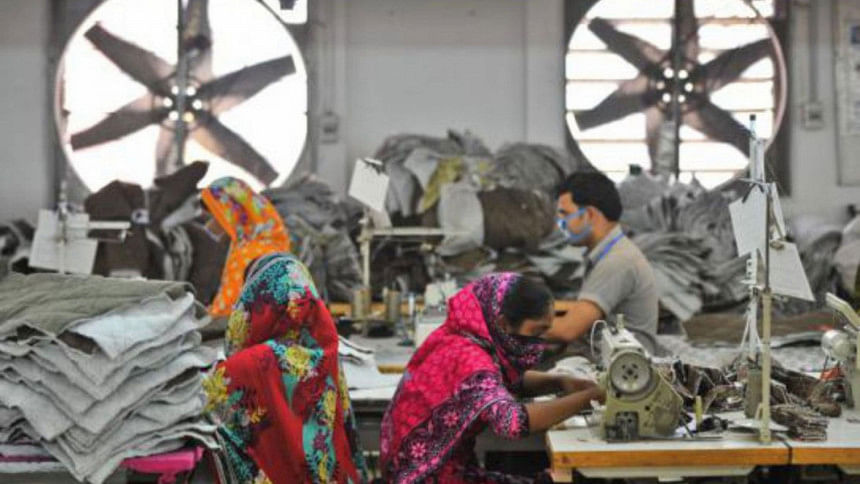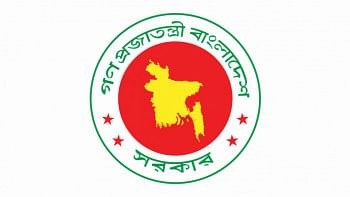Beyond a year on life-support, let’s carefully look to the future

Sometimes an industry needs a helping hand. It happened in many countries, at different junctures of history. Entrepreneurs in Bangladesh's RMG sector might not always be asking for intervention from the state, whether that be our national policymakers or international bodies. Often, the state is associated with bureaucracy, regulations, slowing things down and—in some cases—even corruption.
Its well-acknowledged that without the support of public policy—finance, the Bangladesh RMG sector could have been facing quite a different scenario right now. Let me make clear first off, that already the industry is, in some areas, in a dire position. Hundreds of thousands of jobs have been lost as factories have closed and lost billions of dollars' worth of orders.
The industry will survive, and it will thrive once again, but it may well be a different animal moving forward. Leaner? Of course. More resilient? Without doubt.
But, in many cases, survival was dependent upon the support of the state and government agencies. National and international governments have backed our industry to a remarkable degree over these past 12 months, which serves as an amazing vote of confidence as well as showing how strategically important RMG production is viewed to the economic fortunes of Bangladesh.
Starting with Bangladesh alone, the banks have been hugely supportive of our sector. Last March, when this pandemic really began to bite, Bangladesh Bank quickly sprang into action and announced a moratorium on loan payments until December 31, 2020. It was also announced that banks would be permitted to extend LC payment periods for the import of raw materials.
Meanwhile, a series of stimulus packages have provided liquidity lifeline for many of our businesses. In early April last year, the government agreed to provide a Tk 300bn fund for banks to provide working capital loan facilities to the affected industries. These loans carried an interest rate of 9 percent, half to be borne by the borrower and half by government as subsidy.
At the same time, BB established a Revolving Refinance Scheme of Tk 150bn to ensure financing by banks.
Another package saw the government provide a Tk 200bn fund for banks to provide working capital loan facilities to small and medium enterprises. These loans carried an interest rate of 9 percent of which 4 percent was to be borne by the borrower and 5 percent by the government as subsidy.
Under a "Back-to-Back" LC arrangement, the Export Development Fund was increased from USD 3.5bn to USD 5bn for facilitating the further import of raw materials.
Finally, the Central Bank also launched a Tk 50bn pre-shipment credit refinance scheme.
Besides industries, the government has supported families that have been hit by the pandemic—remember, many have lost their jobs in the past year. Last May, the prime minister launched the disbursement of Tk 12.5bn cash aid for five million poor families. Each family received Tk 2,500 through mobile financial services (MFSs).
Other governments and donors have also stepped up to the plate in our time of need. The Asian Development Bank (ADB) has provided a USD 600m loan as financial assistance to fight the pandemic in Bangladesh. It has also provided a USD 0.35m emergency grant and a USD 1.3m one-off cash support facility.
In May, the International Monetary Fund approved USD 732m emergency assistance for Bangladesh under the Rapid Credit Facility and the Rapid Financing Instrument. Around the same time, the World Bank approved a fast-track USD 100m financing to help Bangladesh prevent, detect, and respond to the pandemic and strengthen its national system for public health emergencies.
Add up all of the above and it is clear that our industry and our people have received a good sum of aid and financial support in the past year—and we are still doing so. Without this support, I think, it is safe to say that more businesses would have gone bust, more workers would have lost their jobs, more people would have plunged into poverty, and more would have lost their lives to this dreadful disease.
Where are we now? Here, I have made the case for state intervention in the form of what we might call "life support" for our industry. Large parts of our industry have been on life support for the past 12-months.
But my hope is that this support does not stop now. We are still far from out of the woods, as this pandemic has dragged on for far longer than many people would have expected.
If the past 12 months has been about providing funding to keep us afloat, we now need sustained financial and other support as we all look to the future. If the financial plug is pulled on the industry now, much of what has been put in during the past 12-months will go to waste. Let's be certain, for many manufacturers, orders have still not picked up (or are only just beginning to pick up).
Yet, we now need to start thinking about the future. Many manufacturers still have serious liquidity issues which will only be solved by a short, sharp injection of cash. I sincerely hope that our policymakers can provide the industry the support that it needs as it navigates through the next few months and begins to refill the order books.
Moving forward, the past 12-months have reinforced how inter-dependent the public and private sectors are. Public bodies are not always appreciated, but the evidence from 2020 showed that they can offer a safety net and be a lender of last resort when markets fail (in this case because of a once-in-a-lifetime pandemic).
The more businesses that can be kept alive, the crucial it is for our overall finance moving forward. RMG in Bangladesh, being so heavily export orientated, is vital in terms of the tax revenues that it brings in. It also plays a key role in ensuring that we have a healthy balance of payments as far as international trade is concerned.
Governments have been our saviour this past year. The entire RMG industry in Bangladesh must always be grateful. But the crucial work is not done yet.
Mostafiz Uddin is the Managing Director of Denim Expert Limited. He is also the Founder and CEO of Bangladesh Apparel Exchange (BAE).

 For all latest news, follow The Daily Star's Google News channel.
For all latest news, follow The Daily Star's Google News channel. 



Comments